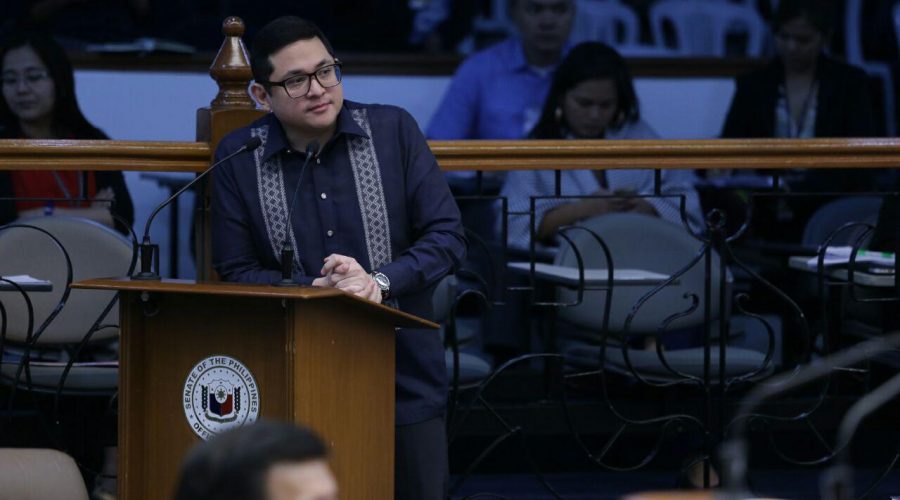Poor
Senate Bill No. 690: Magna Carta of the Poor
The country’s economic performance in recent years has been impressive and unprecedented. Its 7.2% GDP growth in 2013 was the highest in Asia earning the country improved investment grades. Its economic climate is now attractive, viable and profitable for investors to come in – doing business has become more fun in the Philippines.
Despite the accomplishments of the country, it still does face a myriad of challenges – around three million Filipinos do not have jobs and a fifth of the populace is poor.
The daunting task for the State is how to capitalize on its outstanding growth, the critically acclaimed reform efforts and the renewed global confidence, in order to make growth more inclusive and felt by all of the one hundred million Filipinos.
In the midst of this economic progress, it is essential for the State to craft policies so that every Filipino family is recognized regardless of the socio-economic status of its members, and to take care and provide for their needs.
The proposed measure thus seeks to ensure the protection and promotion of five basic rights of every Filipino: the right to food, employment, quality education, shelter and basic health care. It supports the creation of a just and dynamic environment where prosperity is shared through provision of adequate social services and enabling a rising standard of living and improved quality of life for everyone.
As the Philippines grows, no filipino should be left behind.
In view of the foregoing, immediate approval of this bill is earnestly sought.
Senate Bill No. 658: Working Poor Protection Act
The Philippine Social Security Act of 1954 gave rise to the Social Security System (SSS) in the country intended to provide protection against likelihoods and eventualities such as disability and injury, sickness, maternity, old age, and death.
One’s contributions to SSS translate to investments into one’s future and the future of their family. Contributions give citizens access to benefits such as disability aid, retirement relief, and life insurance. SSSalso offers loans at reasonable rates that can be used for various purposes like putting
a child through school or putting up a small business. I
These benefits can make the world of a difference to Filipinos, particularly those burdened by financial instability. However, contributions of individuals earning below P 100,000 annually are intermittent.
Our social protection programs cover the poorest of the poor but only 6.5% of the 12 million self-employed Filipinos are paying their SSS contributions. This is a lost opportunity for countrymen considered our working poor as well as our marginal income earners -farmers, fishermen, market and street vendors, and micro-entrepreneurs across the country.
This bill is the financial support and incentive system our MIEs need to encourage them to invest in their future and their security.
Let us ensure that all working Filipinos are being provided for and that our MIEs are not left behind as we continue to push for inclusive growth in the country.
Let us make the vital adjustments that help Filipinos help themselves. In view of the foregoing, the approval of this bill is earnestly sought.
Senate Bill No. 705: Scholarship for the Poor Act
Rusty Quintana grew up as a street child in Cagayan De Oro, and was unable to finish elementary and high school, instead finishing his basic education through the Alternative Learning System (ALS) Program of the Department of Education. Through his hard work, perseverance and talents. Rusty obtained a scholarship at the prestigious Xavier University and obtained his degree last year.
Rusty represents the many Filipino students who despite their talent, intelligence and determination, are unable to pursue higher education due to a lack of funds.
This bill proposes that all colleges and universities be mandated to provide scholarships to at least 5% of their total student population who are unable to afford secondary education but are deserving of the support.
In this way, post-secondary education in any institution can be made accessible to all students regardless of their financial situation.
By enacting this bill, our nation will uphold Article XIV, Section 1 of the Constitution which provides that the State “protect and promote the right of all citizens to quality education” and “take appropriate steps to make education accessible to all.”
This mandate will serve as an incentive for low-income families and students to strive for excellence in their studies, having a viable pathway to an excellent postsecondary education in any college institution. Filipinos across the nation will be empowered by this legislation which will ultimately serve as a key to rising out of poverty.
In view of the foregoing, the passage of this bill is earnestly sought.

Recent Comments